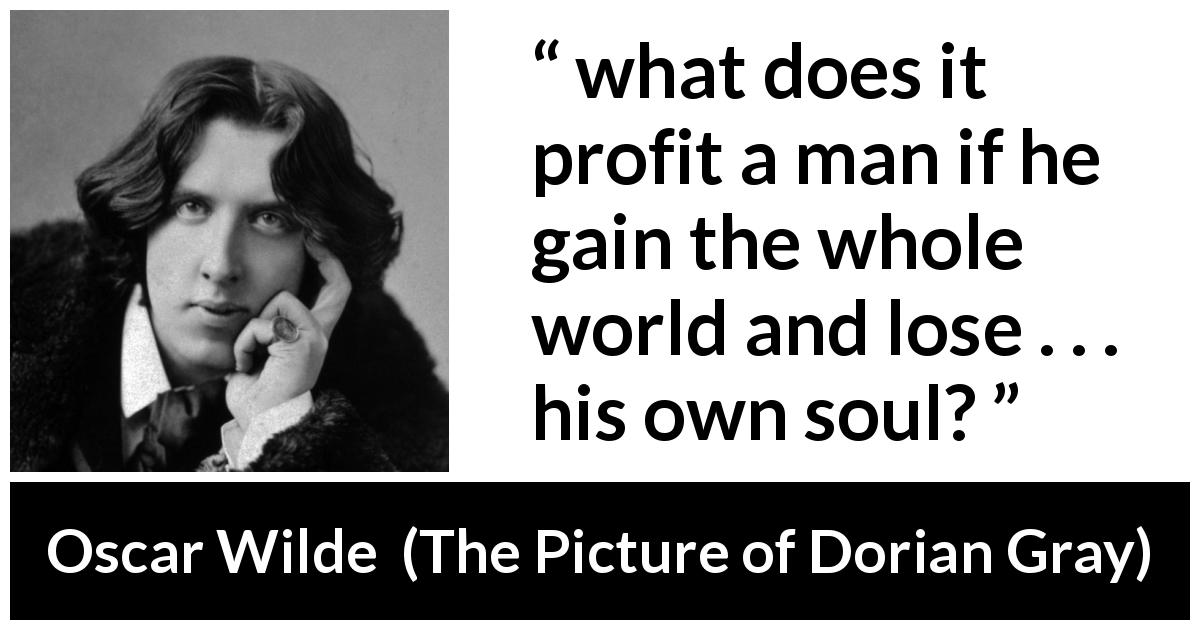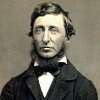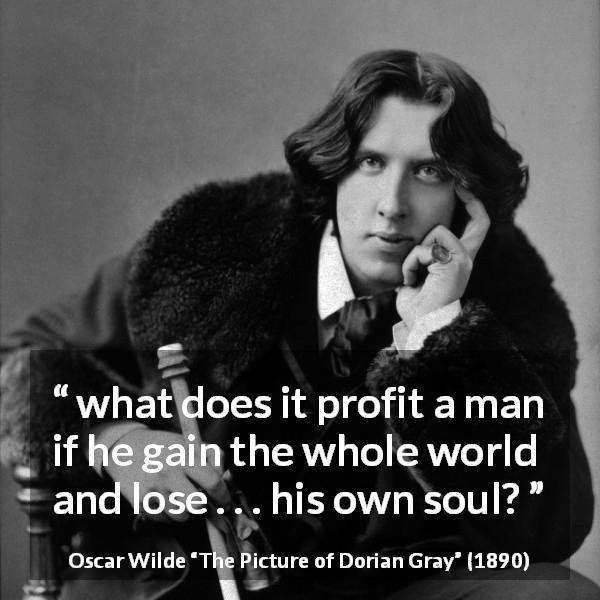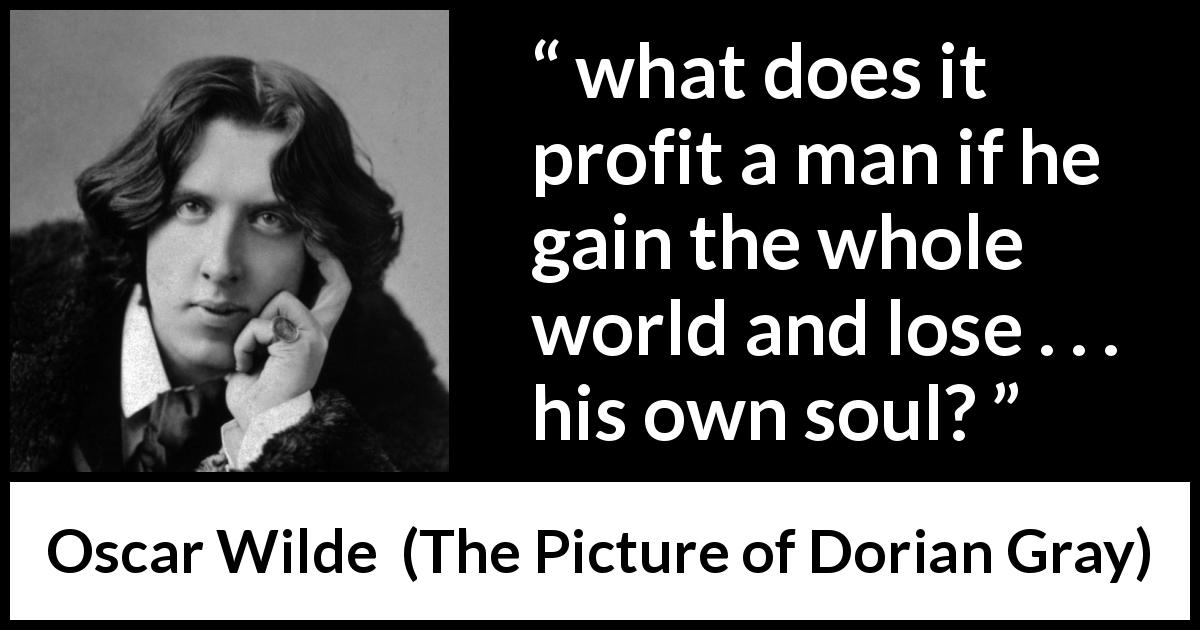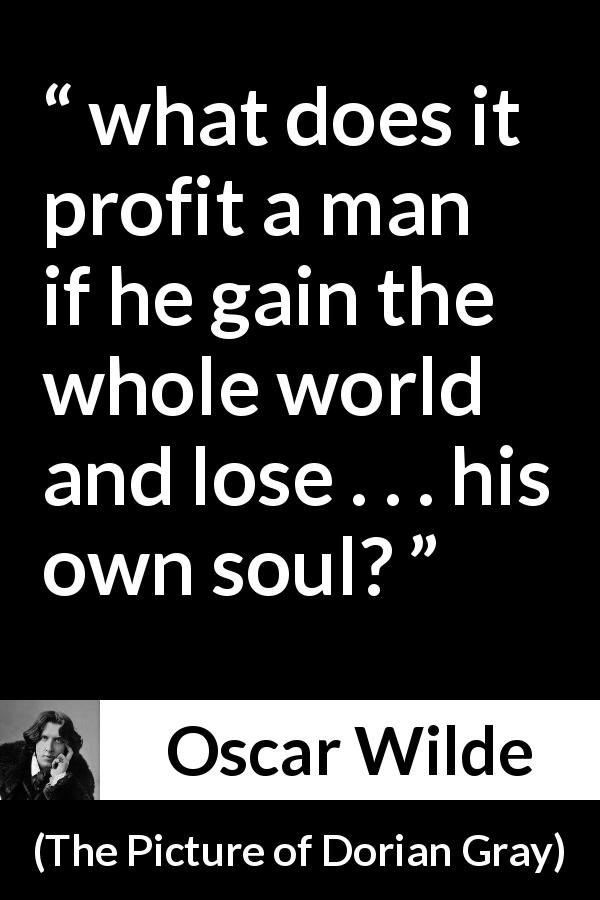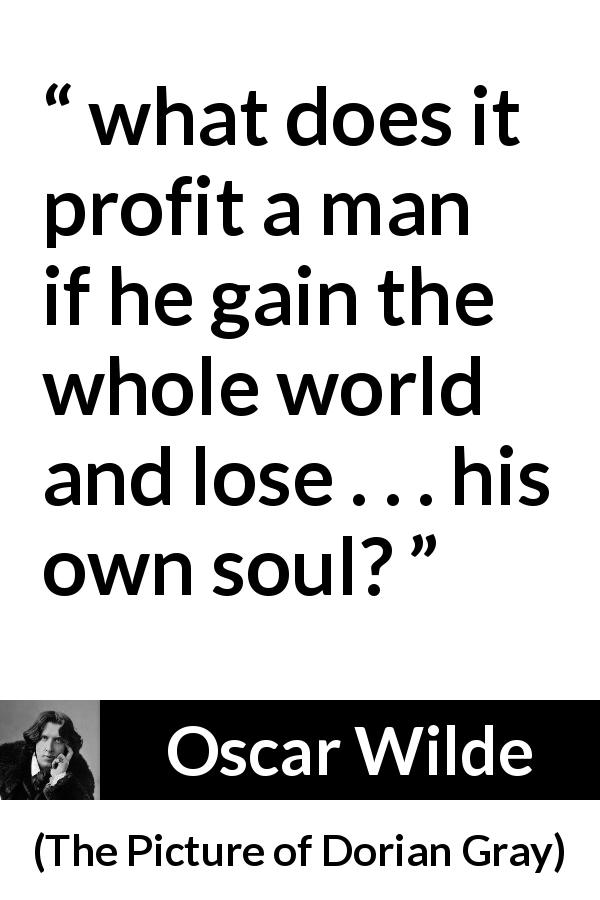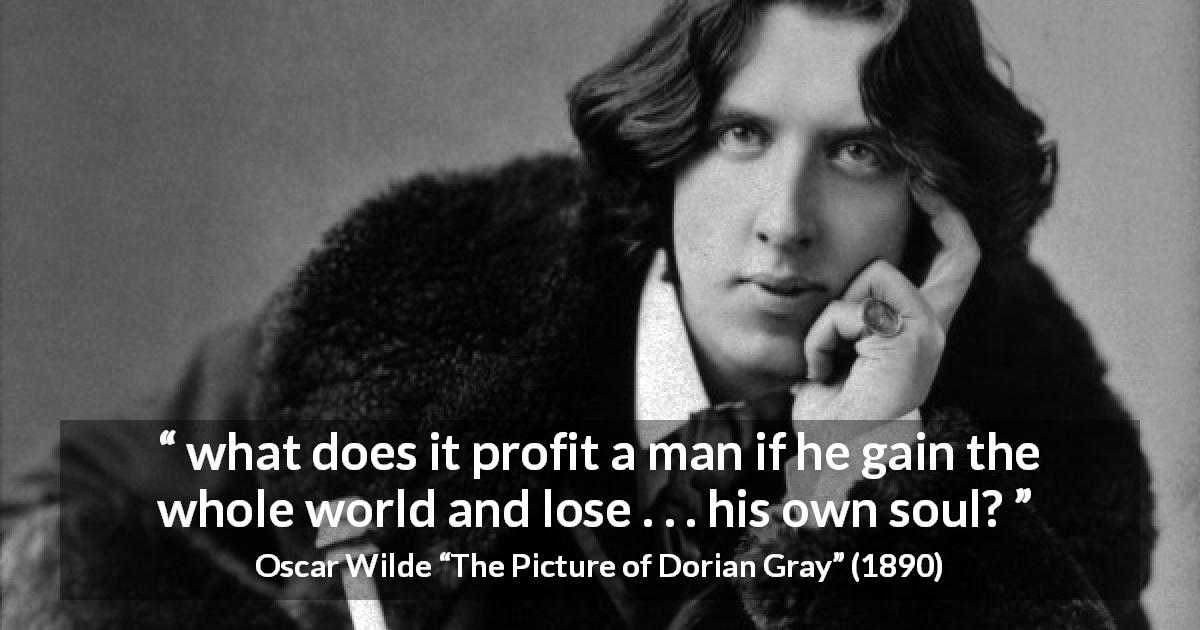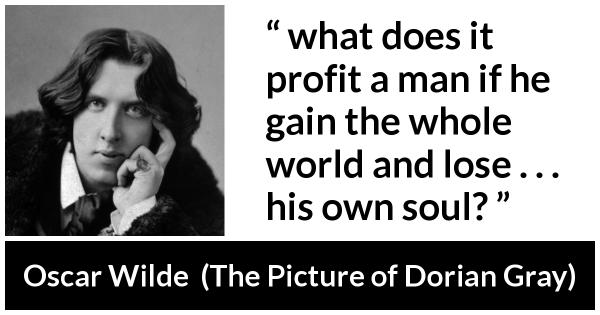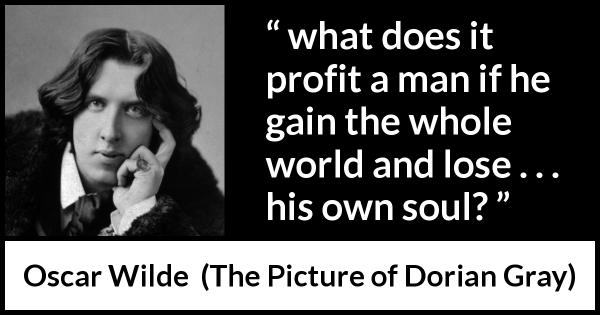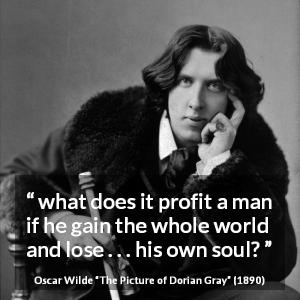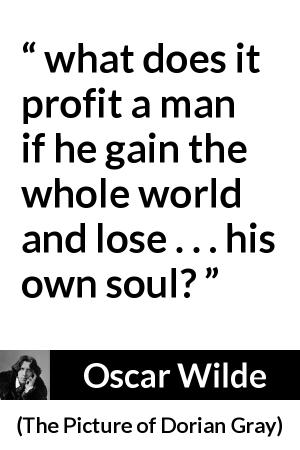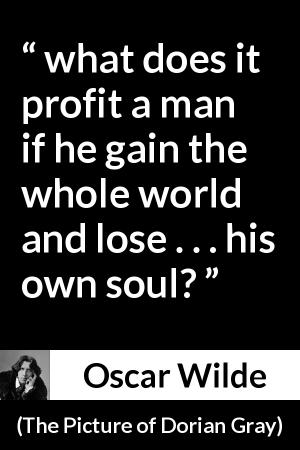“ what does it profit a man if he gain the whole world and lose . . . his own soul? ”
Oscar Wilde, The Picture of Dorian Gray (1890). copy citation
| Author | Oscar Wilde |
|---|---|
| Source | The Picture of Dorian Gray |
| Topic | soul gain profit |
| Date | 1890 |
| Language | English |
| Reference | |
| Note | |
| Weblink | http://www.gutenberg.org/files/174/174-h/174-h.htm |
Context
“Dorian Gray shook his head and struck some soft chords on the piano. "'Like the painting of a sorrow,'" he repeated, "'a face without a heart.' "
The elder man lay back and looked at him with half-closed eyes. "By the way, Dorian," he said after a pause, "'what does it profit a man if he gain the whole world and lose—how does the quotation run?—his own soul'?"
The music jarred, and Dorian Gray started and stared at his friend. "Why do you ask me that, Harry?"
"My dear fellow," said Lord Henry, elevating his eyebrows in surprise, "I asked you because I thought you might be able to give me an answer.” source
The elder man lay back and looked at him with half-closed eyes. "By the way, Dorian," he said after a pause, "'what does it profit a man if he gain the whole world and lose—how does the quotation run?—his own soul'?"
The music jarred, and Dorian Gray started and stared at his friend. "Why do you ask me that, Harry?"
"My dear fellow," said Lord Henry, elevating his eyebrows in surprise, "I asked you because I thought you might be able to give me an answer.” source
Meaning and analysis
useful
useless
Jmksd
This “quote” is actually found in the Biblical scriptures of Matthew 16:26 and Mark 8:36. Oscar Wilde is not the originator of the quote.
Matthew 16:26
King James Version
26 For what is a man profited, if he shall gain the whole world, and lose his own soul? or what shall a man give in exchange for his soul?
Mark 8:36
King James Version
36 For what shall it profit a man, if he shall gain the whole world, and lose his own soul?
useful
useless
